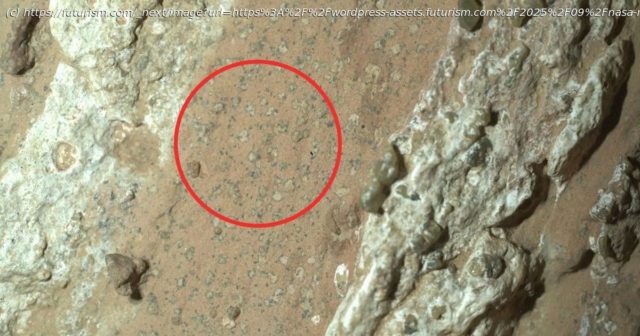NASA has announced that its Perseverance Mars rover spotted « potential biosignatures » in an ancient dry riverbed last year.
NASA has announced that its Perseverance Mars rover spotted « potential biosignatures » in an ancient dry riverbed last year.
Samples collected from a rock dubbed « Cheyava Falls » contain a structure that hints at the possibility of having a biological origin, according to the space agency, but more research needs to be completed to draw any conclusions about the presence of life on the Red Planet.
« The identification of a potential biosignature on the Red Planet is a groundbreaking discovery, and one that will advance our understanding of Mars », said interim NASA administrator Sean Duffy in a statement, arguing this is the « closest we have ever come to discovering life on Mars. »
The rover first encountered the rock in July 2024 while exploring a rocky outcropping, called the Bright Angel rock formation, on the edge of an ancient river valley, which scientists believe was carved into the Martian surface by a rushing river billions of years ago.
Perseverance’s science instruments revealed layers of clay and silt, which are « excellent preservers of past microbial life » on Earth, according to NASA.
« The combination of chemical compounds we found in the Bright Angel formation could have been a rich source of energy for microbial metabolisms », said Stony Brook University associate professor Joel Hurowitz, coauthor of a new paper published in the journal Nature about the finding, in the statement.





![Działo się w poniedziałek. Oto najważniejsze wydarzenia [SKRÓT DNIA]](http://nhub.news/wp-content/uploads/2025/10/thumbdf2a55c33e4ef82cdd77d28611e91c40-100x75.jpeg)
